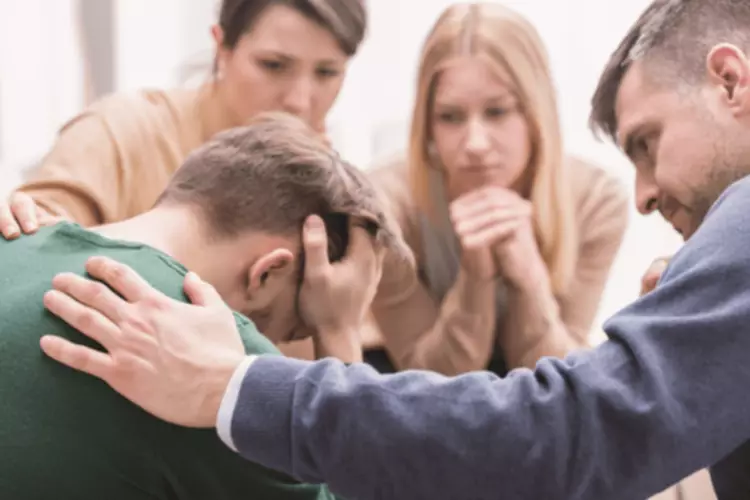27.5 million Americans have battled with alcohol use disorder (AUD). They may stop taking care of themselves or start making excuses for their problems. Experts think this occurs because the neural circuits involved in stress and mood are the same circuits involved in the brain’s reward system.

Something like a stressful job or rejoining a social circle that’s not respectful of your sobriety can make it more difficult to resist having a drink, especially when you’re not used to a sober routine. Withdrawal is the earliest phase of recovery, when the body is initially exposed to the absence of alcohol in the system. For many users, this is one of the most difficult times to avoid relapse. Learn from setbacks, build support, and embrace the learning process for lasting recovery. Studies suggest that approximately 50% of individuals who experience a lapse go on to have a full relapse. For people with longer-term recovery, outsiders can see more clearly the behavioral changes and warning signs that coincide with relapse, like someone suddenly disappearing from their home-group Twelve Step meeting.
Alcohol Relapse by Age
For this reason, stress can trigger the same brain circuits that were triggered when you sought alcohol in the past. This means stress can lead to cravings, which can lead to a relapse. The percentage of alcoholics who recover and stay sober is about 35.9 percent, or about one-third, according to the National Institute on Alcohol Abuse and Alcoholism. Alcohol relapse occurs in almost one-third of recovering alcoholics during their first year of sobriety. My condition was serious enough to warrant strong painkillers and became habit-forming.

When you are abstinent, you completely avoid alcohol and other addictive substances. While some of these figures may feel daunting, they also show that relapse does not have to be the end of your recovery journey. But even with the best of intentions, you may not react to each situation perfectly and may experience one or more relapses. When someone relapses, they return to the behaviours that they have been attempting to avoid. Data analyses were carried out using Statistical Package Social Sciences 17 software (SPSS, USA).
Camelback Recovery
The longer an alcoholic stays sober, the better their chances are for long-term sobriety. Overall, among people sober for five years, the chances of relapsing are less than 15%, according to Psychology Today. Relapse is a common stumbling block during the recovery process and does not mean that you should give up on becoming sober. Different types of relapses exist, including short-term slips, lapses and longer-term relapses. A month later, I confided in my psychiatrist about my need to escape reality. However, if you still have them in your system, it can cause precipitated withdrawal.
Choosing moderation means that you will continue to drink alcohol but with strict limits placed on your consumption of this substance. This means alcoholic relapse rate that you do not use tobacco, cannabis or any other drugs. Some people also avoid caffeine and other addictive behaviours such as gambling.
How Long Does it Take to Break Sugar Addiction?
Group differences for all categorical variables were evaluated using Chi-square or Fisher’s exact probability test as applicable. Group differences in continuous variables were evaluated with student’s unpaired Welch’s t-test. Correlations were carried out with Pearson’s rank correlation coefficient and multiple regression analysis.
- They may stop taking care of themselves or start making excuses for their problems.
- The participants were discharged after they scored 0 on the CIWA-AR and were off lorazepam for at least 7 days.
- These individuals recognized that they had alcohol-related problems and initiated help-seeking, as reflected by an initial contact with the alcoholism treatment system via an Information and Referral (I&R) center or detoxification program.
- Thus, in part, the benefits of help we identified are due to self-selection and motivation to obtain help, as well as to obtaining help per se.
During your addiction treatment, you will learn new and healthy ways to cope with stress, triggers and difficult emotions. A lot of addiction recovery is focused on avoiding relapse after treatment, so it’s important to understand exactly what a relapse is. Different types of medications may be useful at different stages of treatment to help a patient stop abusing drugs, stay in treatment, and avoid relapse.
While relapse is a normal part of recovery, for some drugs, it can be very dangerous—even deadly. If a person uses as much of the drug as they did before quitting, they can easily overdose because their bodies are no longer adapted to their previous level of drug exposure. https://ecosoberhouse.com/ An overdose happens when the person uses enough of a drug to produce uncomfortable feelings, life-threatening symptoms, or death. Alcohol relapse statistics show that only one-third of people with alcohol misuse problems manage to stay sober for the rest of their lives.
